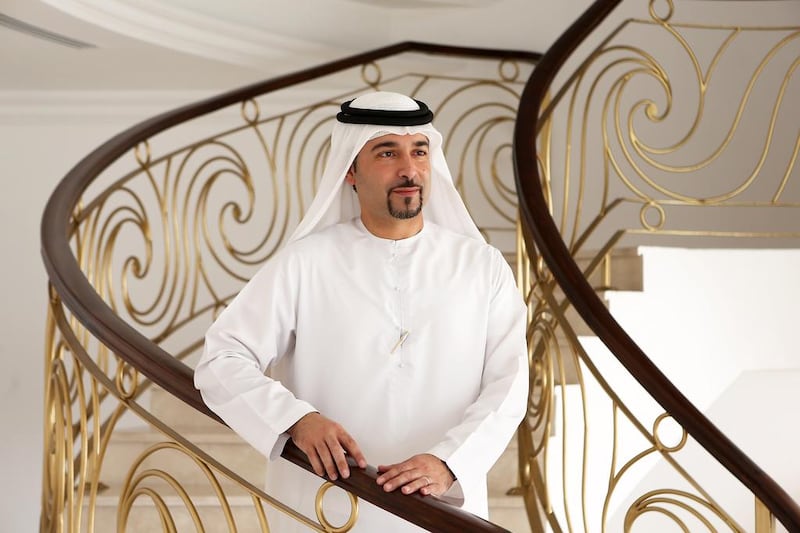SHARJAH // A landmark engineering course pioneered by an Emirati professor is a model for other universities to encourage diversity and help attract women to the field.
The introduction to engineering course is intended to help students overcome their differences in real-life team projects and earned the instructor behind it, Dr Fadi Aloul, an international award.
Dr Aloul was the first Middle Eastern person to receive the Global Engineering Deans Council Airbus Diversity Award.
He was selected from 30 contestants from many countries for his course, which he has taught at the American University of Sharjah for 12 years.
The award is offered by Airbus, the aerospace and defence manufacturer, and the US-based council, because of the growing demand for engineers who can operate in diverse workforces.
The company perceived a lack of diversity among engineering graduates, Dr Aloul said.
“The student comes out unable to deal with other nationalities, and does not perform well in the company because they were never put to work in a team with people from different backgrounds,” Dr Aloul said.
Every term, hundreds of first-year students who enrol in Dr Aloul’s NGN110 course are divided into groups of five. They do not know one another and they come from different majors.
They are then given a simple yet challenging project – for example, building a helicopter from paper that can fly for 10 seconds.
“From day one, we try to teach them how to handle conflict,” said Dr Aloul. “When they complain about their teammates, students are told: ‘Sorry. In real life, you can’t change your colleagues.’”
More than 10,000 students from 70 nationalities have finished the course, and the percentage of young women enrolling rose to 35 per cent, compared with 20 per cent 10 years ago.
The course gave Catrine Al Sayegh, a Palestinian student in her fourth year, the push she needed to enter mechanical engineering.
“It was a very hard step to take – to go to a major that was more dominated by men,” said Ms Al Sayegh, 21. “I wanted mechanical, but no one pushed me to do it until I took this course, and Dr Fadi showed us that engineering is for everyone and that diversity is important.”
The students learnt to resolve team conflicts.
“We were in the storming stage for so long,” she said. “And whether you fight or not, you have to get results.”
Ms Al Sayegh said she thought that she and her colleagues would have quit engineering “if it wasn’t for Dr Fadi and how he pushed us. He guided us towards what we want”.
Saud Al Qasimi, a 19-year-old Emirati student in his third year, said the course “gives you a feel of how engineering will turn out in the future years in university”.
“At the end of the semester, we got a different professor from a different engineering major, and that helped widen our knowledge,” he said.
Dr Aloul said he thought the award committee members were impressed that the course can be easily transferable to any university.
“We already received requests from India and other countries that they want to apply the same [course] in their universities,” he said.
Course material is available in an online journal for everyone to view, “and we can see that the paper has been downloaded many times”, he added, saying the American University of Beirut has also contacted him.
The course was a winner because “brings all of these cultures and challenges to students immediately in terms of team work, engineering fundamentals ... and the need to build something in a competitive environment,” said Dr Leland Blank, dean of the university’s engineering college and member of the Global Engineering Deans Council.
“Men and women working together, innovation to compete and win – these are the goals of the GEDC Airbus Diversity Award that Dr Aloul won,” he said.
hdajani@thenational.ae







